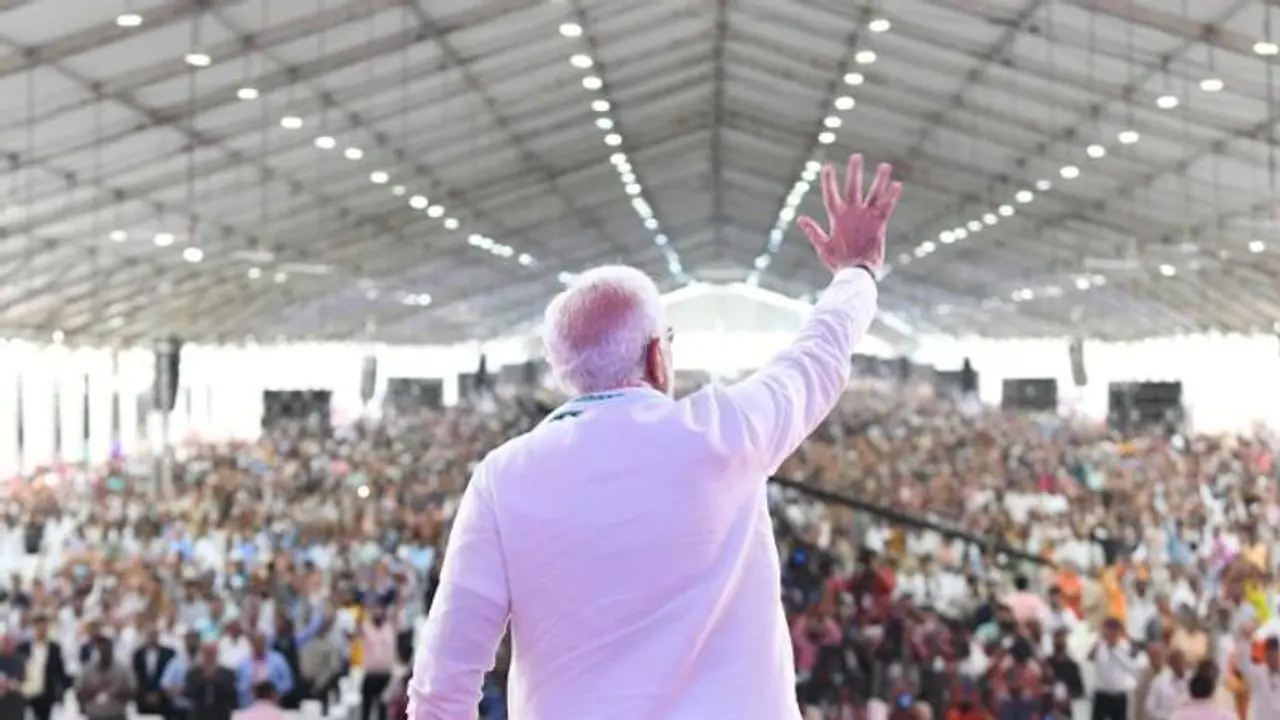Prime Minister Narendra Modi, who is celebrating the 72nd birthday, regained the lost faith of the leaders in democracy by translating the words into deeds, says Dr K S Radhakrishnan.
Narendra Modi is the first prime minister of India who envisioned implementing the Gandhian concept of development in the Indian context as part of the practice of democratic polity. Mahatma Gandhi defined development as a state of affairs in which everyone, including the last in the row, must be able to get the opportunity to satisfy their basic needs -- food, shelter, clothing, medicine, and education in the context in which one lives.

The Gandhian dreams of development were either ignored or forgotten by the direct disciples of Gandhi when they came to power after India won freedom. When Modi got the opportunity to lead India as its chief executive, he introduced paradigm shifts in the functioning of the statecraft. He is the first prime minister of India who gives priority to the Antyodaya -- the upliftment of the last in the row -- as the yardstick of socio-economic development.
The social welfare programs like Swachch Bharat, Anna Yojana, Ujjwal Gas Yojana and Ayushman Bharat Yojana are a few examples to illustrate his commitment to the Gandhian mode of development. Gandhi believed that 'one step was enough for him' in the long path of struggles to achieve great goals. But he was concerned about the inseparable relation between words and deeds of everyone, including the leaders.
Hence, he was so particular that promises in words must be put into practice; at least, there must be an honest effort to materialize the same. The first prime minister of India, despite being the beneficiary of the national movement, believed in rhetoric rather than delivery. Modi, on the contrary, introduced a new paradigm -- from rhetoric to delivery -- to achieve the Gandhian goals.
In India, we followed the Nehruvian paradigm that believes in giving promises of fine-tuned and high-sounding words and doing only little things leaving the undone vast area as unfulfilled promises. Hence, promises given by the leaders in the democratic polity in India have become a mockery, and people gradually lost faith in the words of the leaders and administrators. Modi regained the lost faith of the leaders in democracy by translating the words into deeds.
Gandhi dreamt of an independent India that is free of corruption, exploitation and nepotism. But unfortunately, free India saw daylight corruption, unfettered exploitation and shameless nepotism in democratic practice by the mighty sections of society, including bureaucrats and politicians. Modi ensured transparent and corruption-free administration in a democratic polity.
He has been in power for over two decades -- as chief minister for 12 years and more than eight years as the prime minister. Even his arch critics, despite their constant attack against him, failed to find out a single corruption charge against him.
Another important aspect to be noticed is that he introduced an India-centric paradigm removing the Euro-centric paradigm followed by the Nehruvian mode of leadership. It has been admitted that Jawaharlal Nehru was in love with Lady Mountbatten and Eurocentrism. He declared it openly in a letter he wrote to Gandhi in 1927 -- just before assuming the presidentship of AICC -- that he had little faith in 'Ahimsa' (non-violence) and truth as propagated by Gandhi.
He made it clear that he could not subscribe to the Gandhian ideas of Hindu-Muslim unity and the removal of untouchability through psychic purification. Nehru told Gandhi that he laid his faith in western secularism and Russian socialism rather than the Gandhian-made Sarvodaya based on the achievement of Antyodaya.
The moral purity of a leader at a personal level was the touchstone of political morality in Gandhian thought. But Nehru believed in implementing systemic level social morality capable of keeping up political and personal morality. The result was that we followed the Euro-centric mode of administration, education and political practice in independent India, which empowered the individuals to practice hypocrisy without having a prick of moral conscience.
Hence, Mahatma Gandhi and teachings have been systematically rejected from the practice of democratic polity, declaring them as impractical ideas unfit for modern statecrafts. The Indian universities, even now, consider Mahatma Gandhi and his teachings as academic untouchables. Modi believes that Indian cultural heritage is more suitable for the Indian context, and he replaced Euro-centrism with India centrism.
The declaration of the triumph of the India-centric mode of administration can be seen in the statement of External Affairs Minister S Jaishankar when he reacted to Europe that the problems of Europe are the problems of Europe alone, not the problems of the entire universe. It has been the accepted concept that the problems of Europe are the problems of the world because the Euro-centrists shared a general belief that Europe is the centre of the universe. Now, the scenario has changed. We, the Indians, have got our own free existence, and we are not bothered by the Euro-centric beliefs that Europe is the centre of wisdom, knowledge, and information of everything.
I am proud of being an Indian who has got the opportunity to live in an intellectually-free India.
The author is a former vice-chancellor of Kalady Sanskrit University and former chairman of Kerala PSC. Views expressed are personal.
Also Read: Narendra Modi: The statesman with a dream for India
Also Read: Narendra Modi: The Creative Disruptor
